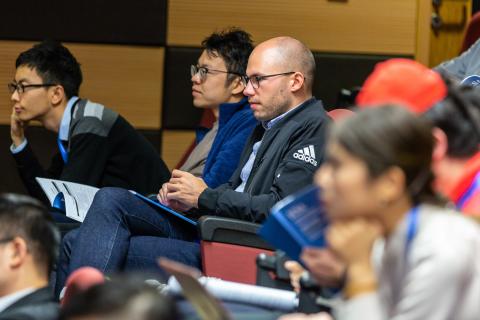The Challenge of the First Generation College Student
Apr 13,2023
For many students, the journey to college is one that is filled with excitement, anticipation, and endless possibilities. However, for first-generation college students, the road to higher education can be fraught with unique challenges that can make the experience both daunting and intimidating. In this article, we will explore the specific challenges that first-generation college students face compared to their peers, and offer some tips and strategies to help these students overcome these obstacles and succeed in their academic pursuits.
First-generation college students are defined as individuals whose parents or guardians did not attend college. According to a report by the National Center for Education Statistics, first-generation college students make up nearly one-third of all college students in the United States. While these students often have a strong desire to pursue higher education, they face a number of challenges that can hinder their success.
Financial Barriers
One of the most significant challenges that first-generation college students face is financial barriers. Many of these students come from low-income families and may not have the resources to pay for college without financial aid. Even with financial aid, the cost of tuition, books, and other expenses can be overwhelming. As a result, many first-generation college students have to work part-time or full-time jobs to make ends meet, which can take away from their study time and impact their academic performance.
Academic Preparedness
Another challenge that first-generation college students face is academic preparedness. Many of these students come from families with limited exposure to higher education and may not have received the same level of academic preparation as their peers. This can make the transition to college-level coursework more difficult and can lead to lower grades and a sense of discouragement.
Navigating the College Environment
Navigating the college environment can also be a challenge for first-generation college students. The college experience can be overwhelming for anyone, but it can be especially daunting for those who are unfamiliar with the campus culture and academic expectations. These students may not know how to access support services or may feel uncomfortable seeking help from professors or advisors.
Cultural and Social Barriers
Finally, first-generation college students may face cultural and social barriers that can impact their success. For example, these students may feel like they don't belong in college because they are the first in their family to pursue higher education. They may also feel like they have to choose between their academic goals and their family responsibilities or cultural traditions.
Tips and Strategies for Success
Despite these challenges, there are several tips and strategies that first-generation college students can use to overcome these obstacles and succeed in their academic pursuits. Some of these tips include:
-
Seek out mentorship and support from professors, advisors, and other students who have navigated the college experience.
-
Take advantage of campus resources, such as tutoring services, career centers, and counseling services.
-
Develop time management and study skills to balance academic and work responsibilities.
-
Build a support network of friends, family, and peers who can offer encouragement and motivation.
-
Get involved in extracurricular activities and clubs to build social connections and enhance the college experience.
Conclusion
First-generation college students face a unique set of challenges that can make the journey to higher education difficult. However, with the right support and strategies, these students can overcome these obstacles and achieve their academic goals. By seeking out mentorship, taking advantage of campus resources, developing time management skills, building a support network, and getting involved in extracurricular activities, first-generation college students can succeed in college and beyond.





